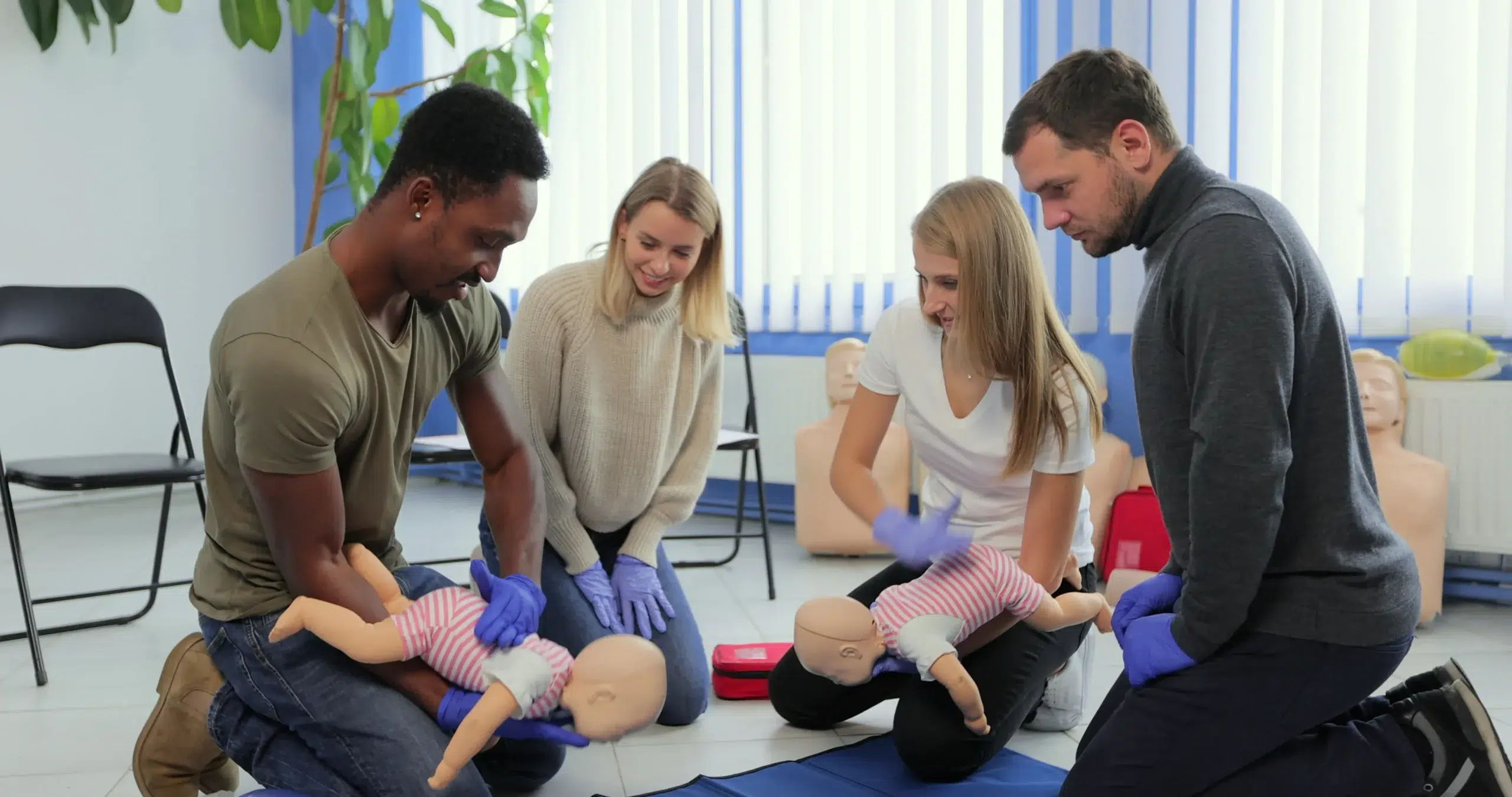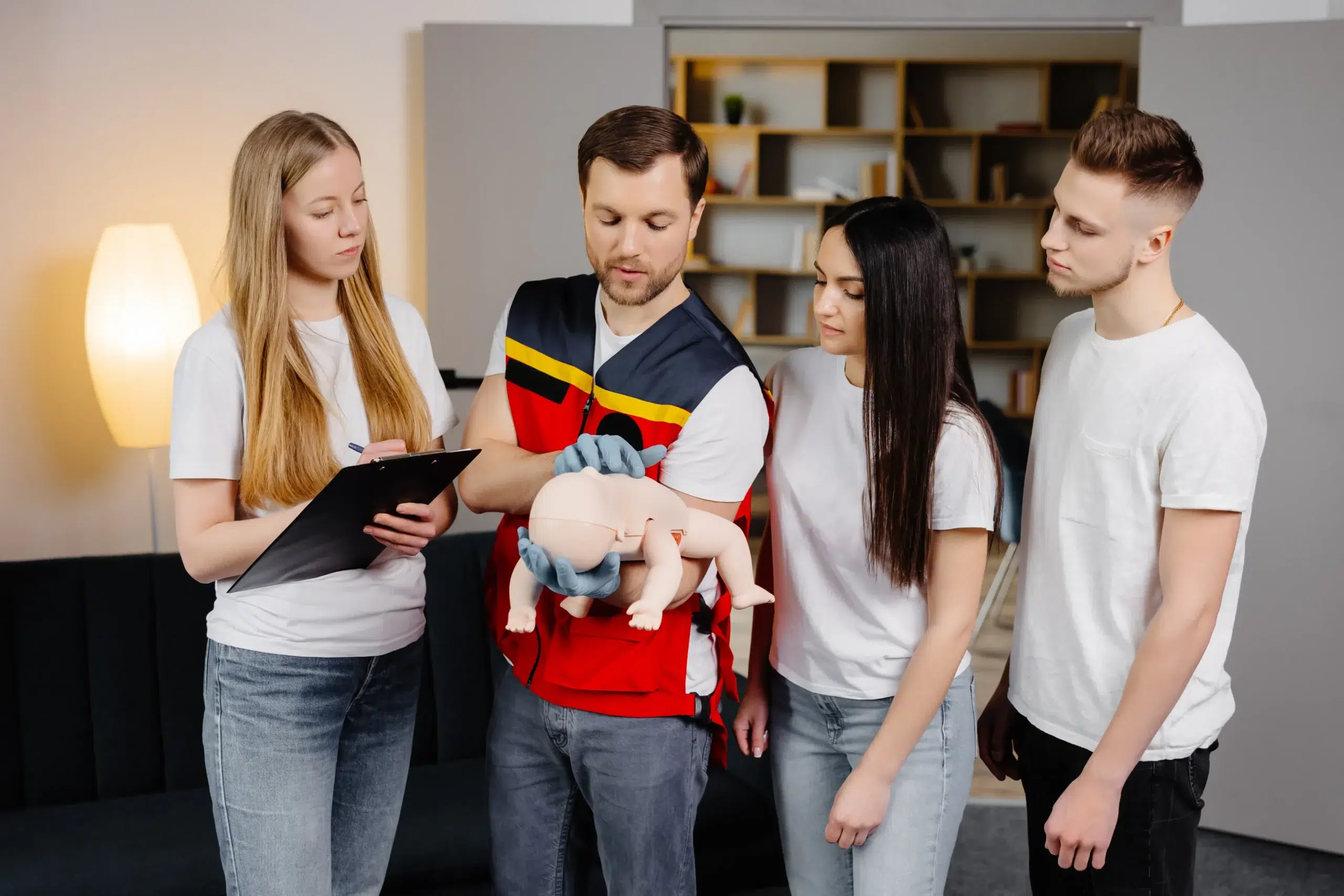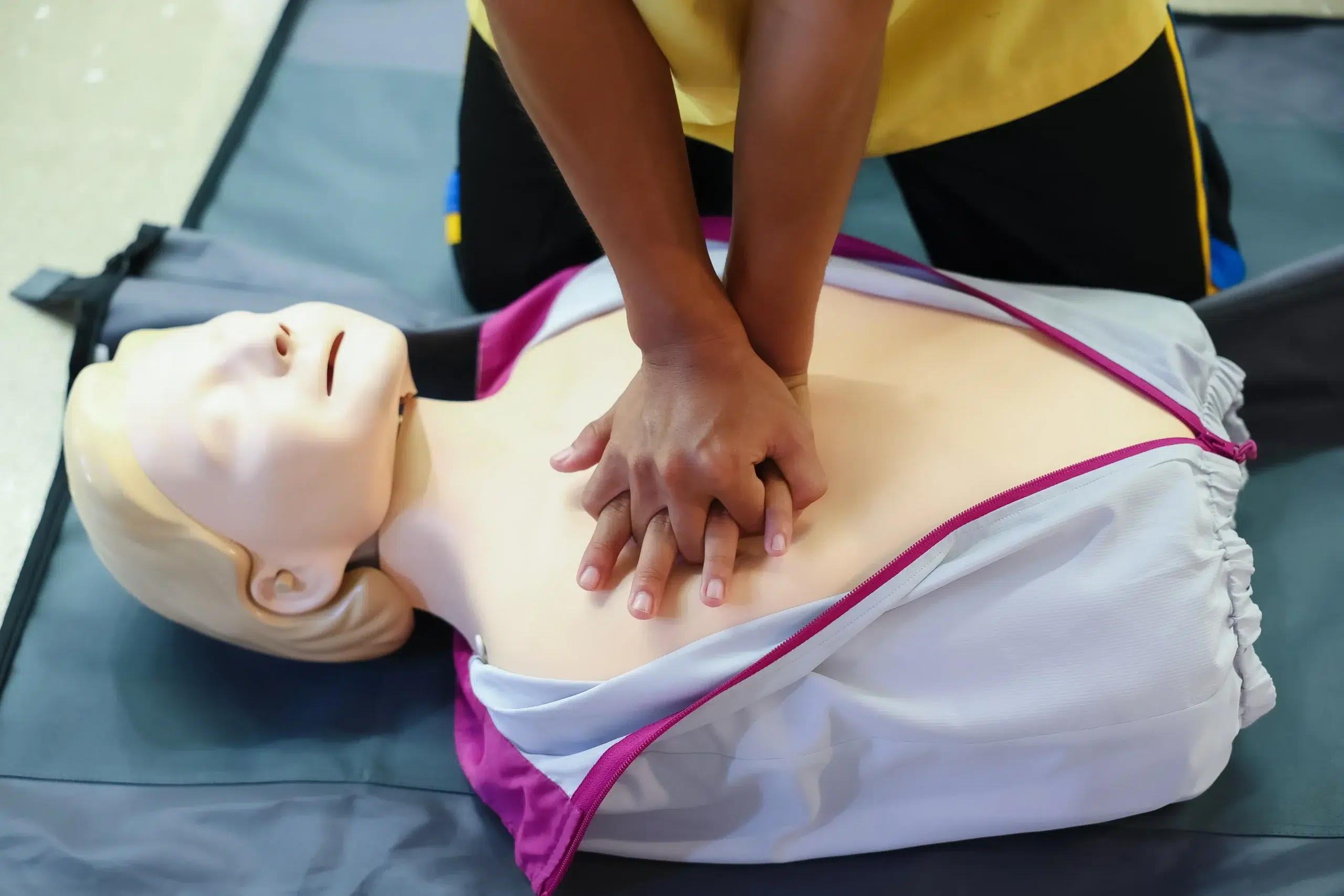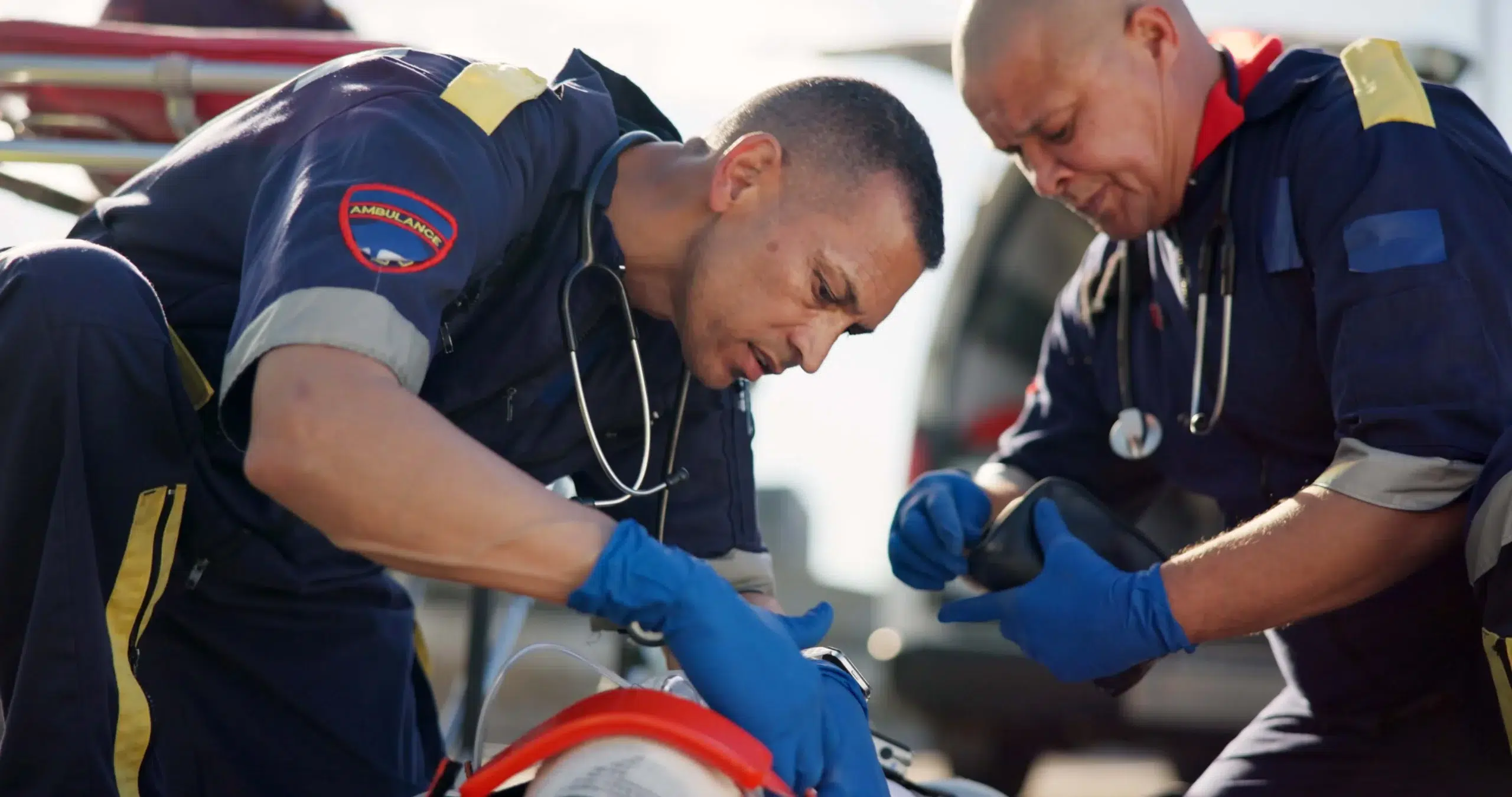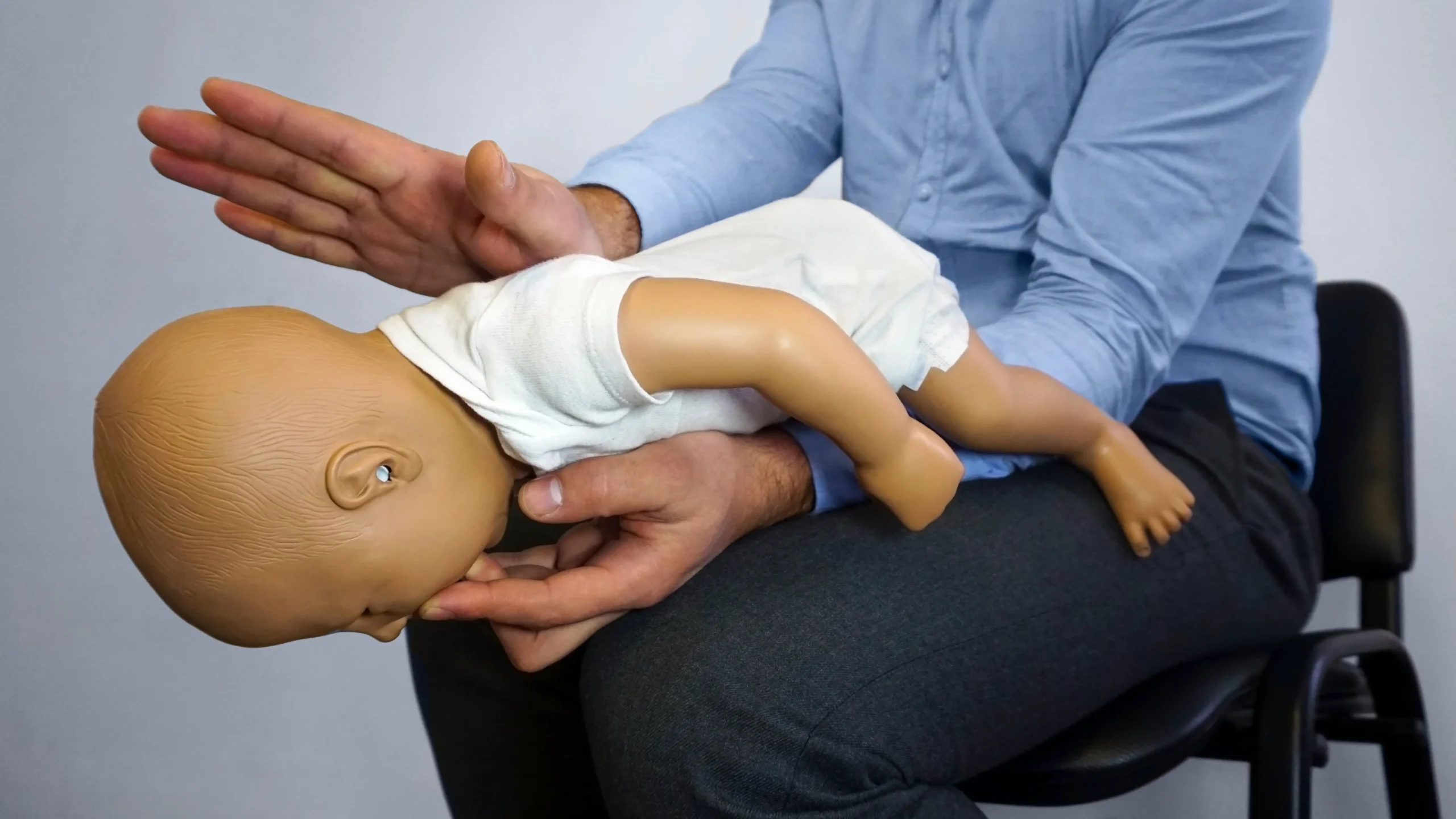Working in healthcare, you know how unpredictable emergencies can be, especially when it comes to young patients. PALS (Pediatric Advanced Life Support) certification is essential for providing effective care in these critical situations. If you’re looking for a flexible and convenient way to get PALS certified, PALS HeartCode in Fremont might be the perfect fit. This article will explore the ins and outs of PALS HeartCode, explaining the blended learning approach, its advantages over traditional classroom courses, and what to expect during the training. We’ll also delve into the cost of certification, where to find reputable providers in Fremont, and how to maintain your certification once you’ve earned it.
Key Takeaways
- HeartCode PALS offers flexible, blended learning: Combine online coursework with an in-person skills session to earn your PALS certification on your own schedule.
- PALS equips you for pediatric emergencies: This training provides healthcare professionals with the knowledge and skills to confidently manage critical situations involving infants and children.
- Select a reputable PALS training center: Choose an AHA-authorized provider like Safety Training Seminars, considering factors such as cost, schedule, and location convenience.
What is HeartCode PALS?
HeartCode PALS is the American Heart Association’s (AHA) blended learning format for Pediatric Advanced Life Support. This approach combines online coursework with a hands-on skills session, letting you learn at your own speed before demonstrating your skills in person. It’s designed to make learning more effective and prepare you for real-world pediatric emergencies.
Blended Learning Explained
HeartCode PALS uses an adaptive learning system, meaning the online portion adjusts to your pace and how well you’re grasping the material. You’ll move through the online modules at your own speed, then attend an in-person skills session (approximately five hours with breaks) to practice and be evaluated. Both the online and in-person components are essential to receive your PALS certification.
Key Course Components
Whether you choose blended learning or a traditional classroom setting, you’ll receive the same AHA PALS Course Completion Card, valid for two years. The AHA offers details on different PALS course options. When you register for HeartCode PALS, you’ll purchase access to the online portion and receive a provider manual (available as a printed book or ebook). Supplemental resources, like reference cards and a DVD, are also available to support your learning.
HeartCode PALS vs. Traditional PALS
Choosing the right PALS course format depends on your learning style and schedule. Let’s explore the key differences between HeartCode PALS (blended learning) and the traditional classroom course.
Online vs. Classroom Learning
The American Heart Association (AHA) offers two paths to PALS certification: HeartCode PALS and a traditional classroom course. Both result in the same AHA PALS Course Completion Card, valid for two years. HeartCode PALS blends online learning with a separate in-person skills session, offering flexibility for busy professionals. The traditional classroom course provides face-to-face instruction for the entire duration. Consider which learning environment best suits your needs and preferences.
Flexible, Self-Paced Study
HeartCode PALS lets you complete the online portion at your own pace. This self-directed learning accommodates various schedules and learning preferences. Study whenever and wherever it’s convenient, making it ideal for those balancing work, family, or other commitments. The online portion typically takes 3–4 hours, followed by a mandatory hands-on skills session.
Adaptive Learning Benefits
The HeartCode PALS online portion uses an adaptive learning system, adjusting to your performance and providing personalized feedback. The program focuses on areas where you need additional practice. You’ll also select between a pre-hospital or in-hospital track, tailoring the content to your specific work setting. This focused approach helps you master the material efficiently.
Find PALS HeartCode Certification in Fremont
Safety Training Seminars: Your Local AHA Training Center
Safety Training Seminars offers convenient PALS certification right here in Fremont. As an authorized American Heart Association Training Center, we provide high-quality courses, including BLS, ACLS, and CPR/First Aid. We also offer other essential certifications like NRP and EMSA. Our classes run daily, and we can even arrange group training at your location. Serving Fremont, Newark, and San Jose, our focus is on providing accessible, affordable training with a low price guarantee and extended customer service hours.
Other Fremont Providers
Fremont CPR Classes
Fremont CPR Classes also provides AHA PALS certification courses in Fremont, offering both initial and renewal options. Their website indicates that classes are available seven days a week, from 7 am to 6 pm, giving you flexibility when scheduling your training.
Additional Local Options
The American Heart Association itself offers two pathways for PALS certification: the blended learning HeartCode PALS and a traditional classroom course. Both options result in the same AHA PALS Course Completion Card, valid for two years. Knowing you have these different learning styles to choose from can help you find the best fit for your schedule and learning preferences. You can explore these PALS course options directly through the AHA.
Cost of HeartCode PALS in Fremont
Typical Pricing and Ranges
Expect to pay around $290 for HeartCode PALS certification in Fremont. This price point is fairly standard across Northern California, as many training centers compete to offer affordable rates. You’ll often find providers advertising price-matching to stay competitive and ensure accessibility. Safety Training Seminars offers a low price guarantee, so check their site for the latest pricing.
Additional Fees
Your PALS certification is valid for two years. After that, you’ll need to renew, which will likely involve additional fees. Factor this into your budget so you’re prepared when the time comes. For more information on affordable courses, visit our low price guarantee page.
Price Comparisons and Guarantees
Many training centers offering PALS also provide other certifications like NRP. It’s worth comparing prices if you plan to take multiple courses. Also, inquire about group discounts, especially if you’re coordinating training for a team. Group discounts can significantly lower the per-person cost. Some providers, like Safety Training Seminars, also offer student discounts. Consider these options to find the best value for your training needs.
HeartCode PALS Structure and Duration
HeartCode PALS blends online learning with a hands-on skills session, offering flexibility and a tailored training experience. Here’s how it works:
Online Portion: Self-Paced Learning (3-4 hours)
The online portion uses an adaptive learning system, adjusting to your pace and focusing on areas where you need more practice. You’ll work through interactive lessons, case studies, and simulations, building a strong foundation in pediatric advanced life support. This typically takes three to four hours. The American Heart Association offers more details on PALS course options.
Hands-On Skills Session: Practical Application (5 hours)
After the online modules, you’ll attend a hands-on skills session with an AHA Instructor. This session reinforces online concepts through practical application. You’ll practice essential skills like CPR and using equipment like AEDs and bag-mask devices. This portion takes about five hours, including breaks. For more information, visit the AHA’s PALS page.
Total Time and Scheduling
The total time for HeartCode PALS depends on your pace through the online portion. While the online modules take roughly 3–4 hours, the in-person skills session is a fixed five hours. This blended format lets you complete the online portion at your convenience and schedule the hands-on session separately, making HeartCode PALS ideal for busy professionals. The AHA website provides further details on PALS courses and scheduling.
Benefits for Healthcare Professionals
As a healthcare provider, staying current on the latest emergency care practices is essential. PALS HeartCode certification offers several advantages for your career and patient care.
Enhance Emergency Response Skills
PALS training gives you the skills to confidently manage pediatric emergencies. You’ll learn systematic assessment and treatment algorithms, improving your ability to provide quick, effective care in critical situations. This training covers a wide range of pediatric emergencies, giving you a comprehensive skill set. This training, as noted by Fremont CPR Classes in their PALS overview, is crucial for effective pediatric emergency care.
Advance Your Career
PALS certification is valuable for career advancement. It shows your commitment to high-quality pediatric care, making you a stronger candidate for jobs and promotions. Many healthcare facilities require PALS certification, particularly for roles involving direct patient care. This PALS course, designed for healthcare professionals like doctors, nurses, and paramedics, can open doors to new opportunities.
Personalized Learning
The HeartCode PALS blended learning format offers flexibility and personalized learning. The online portion lets you study at your own pace and revisit material as needed. The American Heart Association explains that their online PALS course uses an adaptive learning system that adjusts to your individual progress. This approach helps you master the material effectively. The hands-on skills session reinforces your learning with practical application and feedback.
Improve Patient Outcomes
PALS training ultimately aims to improve patient outcomes. By providing healthcare professionals with essential knowledge and skills, PALS empowers you to deliver the best possible care during emergencies. Fremont CPR Classes highlights PALS’ focus on improving patient care and preparedness among healthcare professionals. With improved emergency response skills and a deeper understanding of pediatric care, you’ll be better equipped to positively impact your young patients.
Who Should Take HeartCode PALS?
Required Roles
PALS (Pediatric Advanced Life Support) focuses on advanced emergency care for children and infants facing life-threatening situations such as respiratory emergencies, shock, and cardiac arrest. It builds upon the foundation of pediatric basic life support (BLS), so maintaining current BLS certification is essential. PALS certification is typically required for healthcare providers working in emergency departments, intensive care units, and other critical care settings. These roles often include physicians, nurses, paramedics, respiratory therapists, and other specialized healthcare professionals regularly involved in pediatric emergency care.
Ideal Candidates for Blended Learning
HeartCode PALS is the American Heart Association’s blended learning method for PALS certification. This format combines online learning with a hands-on skills session, offering flexibility for busy professionals. The online portion uses an adaptive learning system, adjusting to each student’s pace and performance. Students can also choose a pre-hospital or in-hospital learning track, tailoring the content to their specific work environment. This blended learning approach is ideal for those who prefer self-directed study and appreciate the convenience of online learning. If you learn effectively independently and want more control over your study schedule, HeartCode PALS may be a great fit. You can complete the online modules at your own pace and then schedule the in-person skills session at your convenience.
Prepare for Your HeartCode PALS Course
Getting ready for your PALS HeartCode course involves a few key steps. Understanding the requirements and using helpful tips can make a big difference in your overall learning experience and success.
Required Materials and Equipment
To start, you’ll need to purchase the HeartCode PALS online portion through the American Heart Association. This online component is the foundation of the blended learning experience. You’ll also need the PALS Provider Manual. This essential resource is available as both a printed book and a convenient ebook, allowing you to choose the format that best suits your study habits. While not required, supplemental materials like reference cards and the optional DVD can further enhance your understanding.
Tips for Online and Hands-On Success
Successfully completing the HeartCode PALS course involves both online learning and a hands-on skills session. Here are a few tips to help you prepare:
- Review Videos: Take advantage of any available review videos. Reviewing them can significantly improve your understanding of the concepts and increase your chances of passing the skills test.
- Skills Test Prep: The skills test uses a voice-activated mannequin. While you’ll be on your own during the test, an instructor is available by phone to provide assistance if needed. Familiarize yourself with this format beforehand to feel more comfortable during the evaluation. Learn more about the skills test.
- Practice Compressions: During the skills check, pay close attention to your compression technique. Ensure you allow for full chest recoil and count out loud. This helps maintain the correct rhythm and depth, ensuring effective compressions.
- Choose Your Format: HeartCode PALS offers flexibility. Consider whether the blended learning format or a traditional classroom setting better aligns with your learning style and schedule. Choosing the right format can significantly impact your preparation and overall success. Explore the different PALS course options available.
Maintain Your PALS Certification
Certification Renewal
Pediatric Advanced Life Support (PALS) certification is valid for two years to help healthcare professionals stay proficient in pediatric emergency care. After two years, you’ll need to renew your PALS certification to maintain your credentials. This renewal process ensures you’re current on the latest guidelines and best practices.
Continuing Education
Want to further develop your skills in pediatric advanced life support? Consider exploring continuing education (CE/CME) opportunities. Ongoing education not only supports your recertification efforts but also plays a crucial role in improving patient outcomes. Staying up-to-date with the latest advancements in PALS is essential for healthcare professionals working in emergency settings.
Choose the Right PALS HeartCode Provider in Fremont
Finding the right PALS HeartCode provider is crucial for a successful learning experience. With several options in Fremont, consider these key factors before deciding.
Factors to Consider
First, confirm the provider’s AHA certification and accreditation. This ensures the training meets national standards and grants a valid certification. Next, consider the course format. Do you prefer blended learning—online modules plus in-person skills testing—or a traditional classroom? Choose what suits your learning style and schedule. Finally, check for availability and flexibility. Look for providers with convenient scheduling, including weekend or evening classes, and on-site group training options. This is especially helpful for busy professionals or organizations. Safety Training Seminars, for example, offers flexible scheduling. See our BLS course schedule for an example. And remember, we offer a low price guarantee.
Compare Local Options
When comparing local options, consider pricing and value. Research providers like Fremont CPR Classes, which offers competitive pricing and a price-matching policy. Check for additional fees beyond the course cost. Also, research the provider’s reputation and reviews. Sites like Bay Area CPR often feature reviews, offering insights into the quality of instruction and overall experience. Reading these can help you choose a provider known for excellent instruction and support. Safety Training Seminars is a woman-owned AHA Training Center committed to quality courses. We encourage you to compare our offerings with other local providers. We also offer group discounts to make training more accessible.
Related Articles
- AHA PALS Classes in Newark, CA – Newark CPR Classes
- CPR Classes in Fremont: Your Comprehensive Guide – Newark CPR Classes
- CPR Certification in San Jose: Your Complete Guide – Newark CPR Classes
- BLS Courses in Newark: Your Complete Guide – Newark CPR Classes
- AHA ACLS Classes in Newark, CA – Newark CPR Classes
Frequently Asked Questions
What exactly is HeartCode PALS, and how does the blended learning format work? HeartCode PALS combines online learning with a separate, in-person skills session. You’ll work through the online modules at your own speed, then schedule a hands-on session to practice your skills and be evaluated by an instructor. This approach allows for flexible learning and personalized feedback.
How does HeartCode PALS differ from a traditional PALS course? Both HeartCode PALS and traditional PALS courses lead to the same AHA certification. The key difference is the format. HeartCode PALS offers the flexibility of online learning, while the traditional course involves in-person instruction for the entire duration. Consider your learning style and schedule when deciding which format is best for you.
What are the costs associated with HeartCode PALS certification, and are there any additional fees I should be aware of? The cost of HeartCode PALS is generally around $290 in the Fremont area, but it’s always a good idea to check with specific providers for their current pricing. Remember that your certification is valid for two years, after which you’ll need to renew, which will likely involve additional fees. Some providers offer discounts for groups or students, so be sure to ask about those options.
What does the HeartCode PALS course involve, and how long does it take to complete? HeartCode PALS consists of two parts: an online self-paced portion, typically taking 3-4 hours, and a mandatory 5-hour in-person skills session. The online portion covers the core PALS content, while the in-person session focuses on practical skills and evaluation. The total time commitment depends on how quickly you complete the online modules.
Who should consider taking a HeartCode PALS course, and what are the benefits for healthcare professionals? PALS certification is often required for healthcare providers working in emergency or critical care settings where they might need to respond to pediatric emergencies. The HeartCode format is particularly well-suited for busy professionals who appreciate the flexibility of online learning. Earning your PALS certification demonstrates your commitment to providing high-quality care and can enhance your career prospects.
